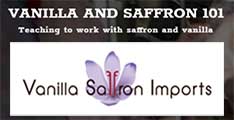Margo Bartlett Pesek. During these two events, the two rural towns fill up with people of Basque descent and onlookers attracted by the pageantry of costumed dancers, traditional contests, ethnic music and flavorful Basque food.
The Basques descend from people who inhabited southern Europe after the last ice age, particularly in the French and Spanish borderlands of the Pyrenees Mountains.
Their language, Euskera, is ancient and unrelated to modern European languages. Those living near the seas were adventurous enough that Basque fisherman and whalers are thought to have visited the eastern coastlines of the Americas long before Columbus explored these shores.
Basques were also among the Spanish explorers and missionaries who followed Columbus’ discoveries, even venturing into early Spanish California and inland into the arid Southwest.
Most Basques arrived in the American West in the mid-1800s as immigrants seeking better fortunes than could be found in their troubled homeland. Many joined the flood of travelers drawn by the California Gold Rush that started in 1849.
The hardworking Basques discovered that there was plenty of work available in the West in the late 1800s. With long traditions as herders, many Basques found work in the region’s emerging livestock industries, particularly sheepherding. Basque men and boys arrived to tend sheep on open range in all the Western states, where they were preferred by stockmen.
They faced lonely months herding sheep on mountainous ranges. When the flocks came down to the warmer valleys for the winter, the herders gathered in rural towns in hotels that were essentially boarding houses. Hotel operators found a ready supply of hotel and kitchen workers among the Basque women and girls left behind in Europe.
Since Basques tended to marry other Basques, few of these female immigrants remained single for long. Many never returned to Europe, staying in America to raise families fully integrated into American life.
Even before the Western sheep industry declined, Basques began to find other occupations, including politics, notably in Nevada.
Today, fewer than 100 Basque herders guide their flocks to summer ranges in the West, living in their humpbacked wagons accompanied only by their dogs and horses. Travelers along U.S. Highway 395 in western Nevada may spot shepherds and their flocks in the foothills around Reno and Carson City. Herds of sheep are being used to keep down invasive cheat grass, which can fuel summer range fires.
Basque traditions carry on in America. In Nevada, their cultural importance is a focus of the University of Nevada, Reno’s Center of Basque Studies. Wherever Basques live, they are apt to gather socially. These congregations led to established Basque clubs, many with their own clubhouses.
Active Basque clubs in Winnemucca and Elko sponsor and support the annual Basque festivals and club events throughout the year. Some festival activities in Elko will take place at the local clubhouse, such as a competition in sheepherder’s bread making, a skill perfected by Basque herders.
Restaurants featuring Basque cuisine are popular in Nevada towns such as Carson City, Reno, Winnemucca and Elko. Several of the old Basque hotels still serve traditional fare. Basque meals are usually presented family-style, often at long tables. Many guests start with a traditional Picon punch. Wine accompanies everything but dessert, and fresh sheepherder’s bread, when available, is a must-have.



 Lagun bati bidali
Lagun bati bidali Komentarioa gehitu
Komentarioa gehitu








